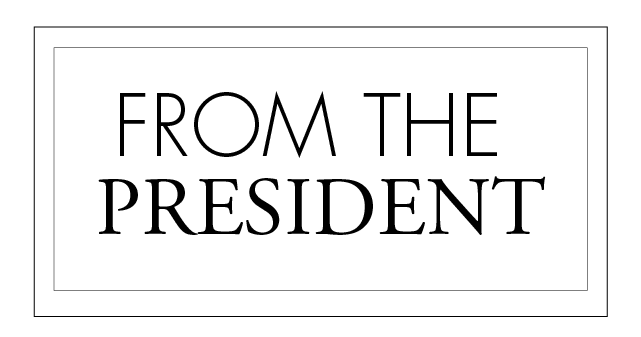I was much too far out all my life And not waving but drowning.1
When I was a young lawyer, an opposing counsel killed himself. The details don’t matter, but it was dramatic and impactful. You know all those articles you’ve seen about how the legal profession suffers from higher levels of stress, depressi on, suicide, and substance abuse than other jobs?2 Well, that hits a little different when it’s someone you know.
on, suicide, and substance abuse than other jobs?2 Well, that hits a little different when it’s someone you know.
Since that time, I’ve seen what I think are signs of distress. Most people did not do anything dramatic (that I know of) but suffering always bears bitter fruit somewhere. I’ve known the alcoholics, the esteemed colleague slowly degrading from old age, the person destroyed by the loss of a loved one, the workaholic unable to get off the hamster wheel. Unfortunately, too many of us know someone who has been in distress and spiraled downward.
When someone is in trouble, do you care? I can’t answer that question for you or tell you how to feel. But I believe a lot of people do care. And some of those people still don’t help. I haven’t. I’ve doubted my ability to serve as a roving clinician and do not want to impinge upon the privacy and sovereignty of another person. And even the part of me that does want to help doubts that I really know how without coming off as awkward, nosy, or perhaps even making things worse.
I know this from personal experience but also from hard data. These obstacles to helping are certainly not unique to the legal profession. But they live here. The State Bar of Michigan Lawyers and Judges Assistance Program (LJAP) receives several calls each week from concerned parties who don’t know how to ask if a colleague, friend, or family member needs help. LJAP Director Molly Ranns and her two clinicians regularly walk people through these types of conversations, helping folks formulate thoughts, challenge their own irrational fears that asking will make something worse, and provide specific ways to actively listen without judgment.
I took my own advice; I asked Molly for some help. Perhaps a reader just had this experience or will in the near future. Where can they start?
Daniel D. Quick: First and foremost, what are some signs and/or symptoms that might be displayed if someone needs help?
Molly Ranns: In the most general terms, one common indicator of an issue is noticing a change. Change can present itself in many different forms. It can be physical with a change in appearance or extreme tiredness/fatigue. It could also be a change in behavior such as withdrawing from friends, family, and social events or perhaps losing interest in activities they once enjoyed. Symptoms can also manifest as increased drug/alcohol use, mood swings, or bursts of anger.3
Additional Resources
- This article summarizes 10 signs that might be apparent when someone is struggling: https://perma.cc/AE4P-MZ85.4
- This article is a solid source and though written more for an individual wondering if they personally need help, it echoes what the prior article says and provides helpful information: https://perma.cc/TM98-U5DH.5
DDQ: How do we go about asking someone if they’re struggling?
MR: Now that we know some of the signs, the next step is having a delicate conversation. We may feel awkward or uncomfortable, but by taking this step we can try to help colleagues down the path of addressing any issues.
Molly previously wrote an article for the Michigan Bar Journal that suggests we use the acronym ASK as a guide in these conversations.
ASK
Ask the question (are you okay?)
Seek more information (non-judgmentally)
Know where to find resources (LJAP, of course).6
While her article focused on suicide prevention, it provides an excellent overview for any conversation concerning well-being and mental health.
Being thoughtful and preparing for your conversation can help create a positive outcome. One of my favorite pieces of advice is to ask the individual twice. The conversation might be difficult, but for many it is even more difficult to admit they need help.7
Additional resources
DDQ: Finally, how can we help someone who is struggling?
MR: The State Bar of Michigan offers virtual support groups, clinical assessments, training on practicing wellness, and referrals to mental health providers through the Lawyers and Judges Assistance Program. Contact us at 1-800-996-5522 or contactLJAP@michbar.org, or visit www.michbar.org/LJAP for more information.
Molly notes that we cannot truly help others without shaming or judging them until we are able to ask for help ourselves without judgement or self-criticism.
Additional resource:
- Here is a short video of Oprah Winfrey interviewing Brené Brown, a clinical social worker and academician renowned for her work on vulnerability and shame, among a number of other topics: https://perma.cc/YE9T-4TFH.10